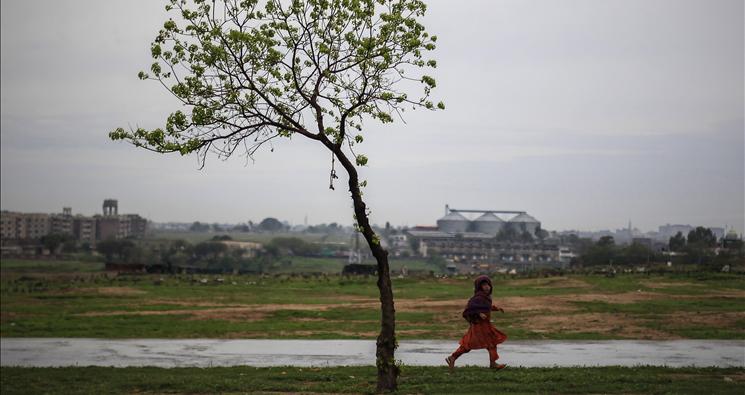ECLJ Seeks Justice for Seven-Year-Old Christian Pakistani Rape Victim
Written by Shaheryar Gill
The Organization for Legal Aid (OLA), ECLJ’s affiliate in Pakistan, is seeking justice for a seven-year-old Christian girl, Saira Iqbal, who was raped by a local eighteen-year-old Muslim resident, Fakhar Alam, on April 20, 2014. Two days after the incident, Saira was taken to Sialkot Civil Hospital where Dr. Maria Aslam conducted her medical examination, confirming that Saira had been raped. DNA evidence has also been collected.
The incident occurred on Easter Sunday. Saira went to a nearby shop to buy “some sweets” where Fakhar abducted her, blindfolded her, tied her hands, and raped her. When Saira did not return home, her brothers, Shahbaz and Emmanuel Masih, set out to search for Saira. They heard Saira’s cries and witnessed Fakhar escaping from the scene.
Ahmed Yaar Nagra and Mohammad Zulifqar Nagra, landlords of the village, who are also Fakhar’s relatives, threatened Saira’s family, forcing them to keep the matter quiet. On April 21, 2014, the matter was taken to the arbitrary council (composed of elders of the village). Fakhar’s family attempted to misguide Saira’s family and to delay the matter when they produced Fakhar’s brother as Fakhar. Saira said that the brother was not Fakhar and he did not rape her.
On April 22, 2014, District Police Officer (DPO) Gohar Nafees was informed of the incident. DPO Gohar Nafees personally rushed to the village of Malleki, took Saira to Sialkot Civil Hospital, and ordered the arrest of Fakhar Alam and the landlords of the village, Ahmed Yaar and Mohammad Zulifqar, who forced Saira’s family to keep the matter quiet. They have been charged under Pakistan Penal Code Section 376 and Section 201 with rape and for causing the disappearance of evidence. On April 23, 2014, Ahmed Yaar was granted pre-arrest bail and Mohammad Zulifqar was discharged due to lack of evidence.
Saira’s family has since left their family home because they fear being harassed and threatened by Fakhar’s family. The OLA plans to use medical evidence, and Saira’s testimony, to ensure that Fakhar is convicted. Under old Pakistani law, the conviction of Fakhar would have been impossible. In order to prove rape, a rape victim had to produce four male witnesses to the crime and DNA evidence was not permissible. However, in 2006, the Women’s Protection Bill was passed in Pakistan. Under the new law, four male witnesses are no longer required for conviction. Instead, convictions may be made based on forensic and circumstantial evidence, including DNA evidence.
Shaheryar Gill servers as Associate Counsel with the ECLJ and oversees the OLA’s work in Pakistan.
